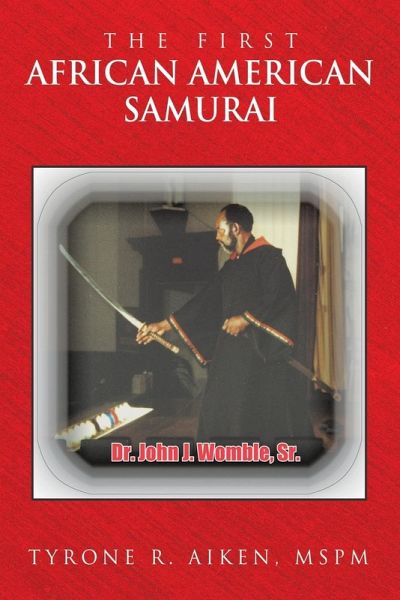
The First African American Samurai
Versandkostenfrei!
Versandfertig in 1-2 Wochen
21,99 €
inkl. MwSt.
Weitere Ausgaben:

PAYBACK Punkte
11 °P sammeln!
When John Womble, a young US Army Ranger, arrived at his posting at Camp Wood in Kumamoto, Japan, in 1954, his perception of Japan and its people had been molded by the post-WWII racially charged portrayals of the Land of the Rising Sun in American media. However, he quickly realized that the way American media had portrayed them was not the truth-just like the stereotypical and racist depictions of Black Americans never mirrored reality. Interested in learning more about the country and its traditions, Womble often ventured outside the base and into the small city, which housed a striking 400...
When John Womble, a young US Army Ranger, arrived at his posting at Camp Wood in Kumamoto, Japan, in 1954, his perception of Japan and its people had been molded by the post-WWII racially charged portrayals of the Land of the Rising Sun in American media. However, he quickly realized that the way American media had portrayed them was not the truth-just like the stereotypical and racist depictions of Black Americans never mirrored reality. Interested in learning more about the country and its traditions, Womble often ventured outside the base and into the small city, which housed a striking 400-year-old castle that had been the battleground of the great feudal lords of ancient Japan. Drawn more and more into Japanese history and culture, he took the time to learn the language and code of ethics. One day, he attended a boxing match where he witnessed a Samurai quickly knock out an American boxer. That's when his life changed forever. Determined to become a Samurai, he was selected to attend the prestigious School of Samurai, where the training was rigorous. So rigorous in fact, that most students quit. But not Womble. He trained hard physically, handled the mental and emotional toll that the discipline imposed upon him, and eventually succeeded in becoming a Samurai. After being discharged from the military, Womble went back home no longer as the naïve teenager who left, but as the first African American Samurai. He committed his life to using his Samurai training to serve his community, helping inner-city youth to strive despite all the difficulties they faced, from poverty and gun violence to racism and lack of opportunities. This book, written by one of his students, is the ultimate testament to the long-lasting legacy and impact he had on those lucky enough to call him sensei.



